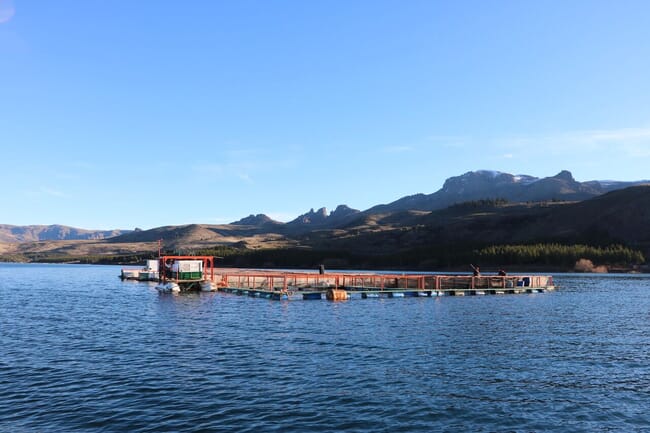The GGGI is an alliance of organisations working to find solutions to the problem of lost, abandoned or discarded fishing gear – known as ghost gear. While the issue of ghost gear from fisheries entering the oceans has been well documented, and it is known that every year at least 640,000 tonnes of ghost gear is left in the oceans, the impact made by fish farms remains unexplored. The ASC’s knowledge and influence in the aquaculture industry will help widen the impact of GGGI to include fish farms, and ASC will learn from the experiences of its GGGI partners with an eye towards applying lessons learned to aquaculture production.

“As with fisheries, plastics are have become increasingly important materials for much of the equipment used in aquaculture, such as nets, pens, and buoys. Many of these materials have allowed big improvements in efficiency and productivity of the sector. But with so much plastic entering our oceans we decided that action was required to assess how aquaculture can reduce the impacts of plastic from the sector,” said Marcelo Hidalgo, standards and certification coordinator for ASC, who is leading the work.
With so much plastic entering our oceans we decided that action was required to assess how aquaculture can reduce the impacts of plastic from the sector
“We’re excited to have the Aquaculture Stewardship Council join the Global Ghost Gear Initiative. Aquaculture is a huge part of the industry and it’s wonderful to see ASC wanting to engage proactively on the issue of gear loss,” said Joel Baziuk, GGGI Secretariat. “We’re looking forward to working together to find solutions to lost gear in the aquaculture sector in addition to our ongoing work in wild capture fisheries.”
ASC has begun comprehensive research into the most commonplace and highest-risk plastics used in aquaculture equipment, and new criteria on plastic disposal are currently being drafted ahead of a public consultation. With ten standards covering over 700 ASC-certified farms on six continents, when the criteria are approved it will have a global impact on the disposal of plastics and aquaculture gear by the aquaculture industry.
Aquaculture now accounts for half of the world’s seafood supply, and the UN Food and Agricultural Organization estimates that this share will continue to grow. This rise in production increases the importance of understanding how activities on fish farms impact the environment and communities so that these impacts of the industry can be further prevented.
Last week Hidalgo spoke at a GGGI event in Bali, introducing ASC’s new work stream on plastics. Next month, in a first for any global aquaculture scheme, he will propose solutions on plastics in a presentation to the World Sustainable Oceans Conference in Hong Kong. The presentation is titled How the aquaculture industry can minimize the impact of plastic pollution into the ocean – a practical approach.
ASC has already begun the process of working with farmers to identify the most commonly used plastics in aquaculture, what they tend to be used for, and the risk of them entering the oceans.
“Plastics is a catch-all term for a wide variety of materials with very different properties, so the first step is to understand what type of plastics are most commonly used in aquaculture, and what risks they pose to the wider oceans,” said Hidalgo. “So far, there has been very limited research into this area and our work will help the entire industry adapt better practices. Our own standards will be updated to include specific indicators on the proper disposal of plastics once the proper consultation process has been completed over the coming years.”

